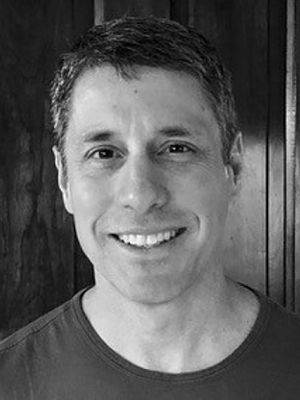Picking Out Bananas
[creative nonfiction]
Now I’m able to just state the facts: My daughter goes to a school in the city, my son goes to the public high school. I try to leave it at that. I no longer feel compelled to go into all the rest.
Before my daughter started coming home for visits, when she was still unsafe, they had to interrogate me to get at the truth. When you meet someone new in the suburbs, the questions about kids always come, usually just after where do you live, and right before where do you work. Two kids, I would say, a boy and a girl, how ‘bout you? And this was often enough because most people don’t really want to know about your home or your kids or your job—they are just seeking that toe-hold, that point of purchase that allows them to talk about their own home, their own kids, their own job. But some persisted.
My daughter was curious before we arrived, although my wife and I felt gutted. We were relinquishing our most sacred responsibility, even as we knew that we had no choice.
My son’s a freshman, I would say, and I named the high school, and sometimes, if the person I just met had a child at the same school, this offered an escape from the grilling. But sometimes not. My daughter’s in eighth grade, I’d then allow. You’ve probably never heard of her school, I’d say when they continued to dig; it’s a residential treatment center (although I still preferred to think of it as a therapeutic boarding school). I would let those three terrifying words hang in the air, waiting to see if they provided a passage back to drinking a beer or to watching my son play soccer or to picking out bananas at the Jewel in peace.
In those first months, right after my wife and I dropped our daughter off at the residential treatment center (back when I could still sometimes convince myself that it was a therapeutic boarding school), when I met new people and they asked about my kids, because in the suburbs the questions about kids always come, usually just after where do you live, and right before where do you work, I would say way too much.
My daughter was curious before we arrived, although my wife and I felt gutted. We were relinquishing our most sacred responsibility, even as we knew that we had no choice.
The staff took our daughter upstairs to show her where she would live, to introduce her to her dorm-mates, while the dorm manager met with my wife and me in the well-appointed first-floor living room, saying words like Unusual Incident Reports and Restraint Protocols and Crisis Intervention Staff and other more positive words that I didn’t hear and still can’t remember.
When they brought my daughter back down to say goodbye, her curiosity was replaced by tears and she wouldn’t look at us or hug us. She didn’t say goodbye; she shouted don’t leave me here! In the weeks and months after we dropped her off (abandoned was the word that rattled around inside of my head), the mask of terror she wore when we left her proved impossible to forget.
In those early months I would buckle immediately, admit from the start that I’d locked my daughter in a residential treatment center (although to cope, I had to think of it as a therapeutic boarding school) because the tumor of pain and guilt was so large and pulsated just below the thin membrane of my skin, and because a single question about my kids was enough to lance it open and let everything out. So I’d offer evidence of the autism and the mood disorders and the violence and the suicide attempts, and I felt like I needed to tell them everything so that the person I just met could understand, could forgive me for what I’d done to my daughter, even if she could not forgive me, even if I could not forgive myself. And the person I just met would manage a few awkward words of sympathy or worse before they put some distance between us, returning with relief to drinking a beer or to watching their own son play soccer or to picking out bananas at the Jewel.

 Jeff Hoffmann’s writing has appeared or is forthcoming in The Sun, The Madison Review, New Madrid, and Sanskrit among others. He was awarded the 2018 Chris O’Malley Prize for Fiction, and he’s currently pursuing his MFA at Columbia College Chicago.
Jeff Hoffmann’s writing has appeared or is forthcoming in The Sun, The Madison Review, New Madrid, and Sanskrit among others. He was awarded the 2018 Chris O’Malley Prize for Fiction, and he’s currently pursuing his MFA at Columbia College Chicago.


